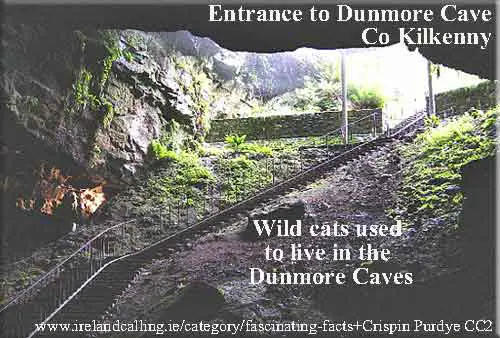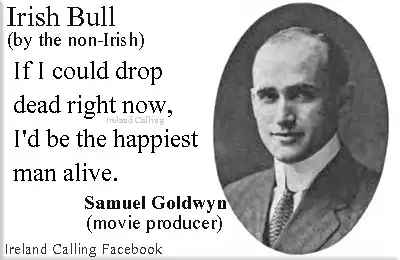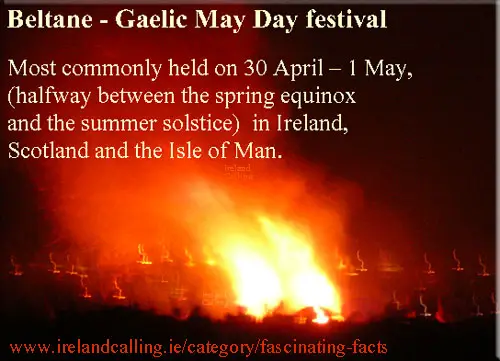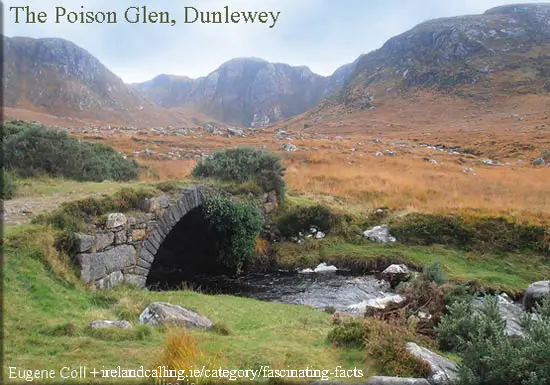Burn’s night is on 25 January – it is a celebration of the life and poetry of Robert Burns who was born on 25 January 1759.
He wrote Auld Lang Syne, which is traditionally sang at the start of each new year, but also at funerals and at the endings of other occasions. Boy Scouts often sing it at the end of jamborees.
* * *
The Irish spend more money during the Christmas season than any other European country.
* * *
Dunmore Cave was the site of a Viking massacre in 928. Important archæological discoveries have been made in the caves including large quantities of human remains in 1869. In 1999, 43 silver and bronze items were discovered which dated back to 970 AD.
Wild cats used to live in the Dunmore Caves in Co Kilkenny. The county has been associated with cats ever since. Dunmore Caves are underground limestone caves and are open to the public with a guided tour for a small charge. The temperature in the cave is about 9/10C degrees, and there are over 300 steps, down, and then up again! The cave is open to the public.

![]()
Irish Bull – A nonsensical statement in which the second part of the sentence makes the first part impossible – eg, “If I could drop dead right now, I’d be the happiest man alive.” (actually said by non-Irish man Samuel Goldwyn) – is known as an Irish bull.

![]()
American writer Edgar Allan Poe has Irish parents. However, he was abandoned by his father when he was a toddler after his mother died.
* * *

* * *
April 30th and May 1st are the best days to gather herbs for medicinal use according to Irish mythology. Beltane is the Gaelic May Day festival which falls on 1 May,
Beltane marked the beginning of summer. Special bonfires were lit, and their flames, smoke and ashes were thought to have protective powers. People and their cattle would walk around the bonfire. Then the cattle were driven out to the summer pastures.

![]()
The town of Cahirciveen in Co Kerry used to be so inaccessible from the rest of the country that Dubliners would send post via New York. The post would reach Cahirciveen quicker this way than sending it direct.
* * *
The ‘Poison Glen’ was previously known as the ‘Heavenly Glen’. Regrettably, when the English cartographer was drawing the map, he mistakenly muddled the Gaelic word for Heaven (neamh) with the word for poison (neimhe).


All images are copyright Ireland Calling (unless stated on the photo)
